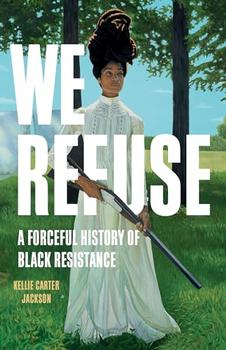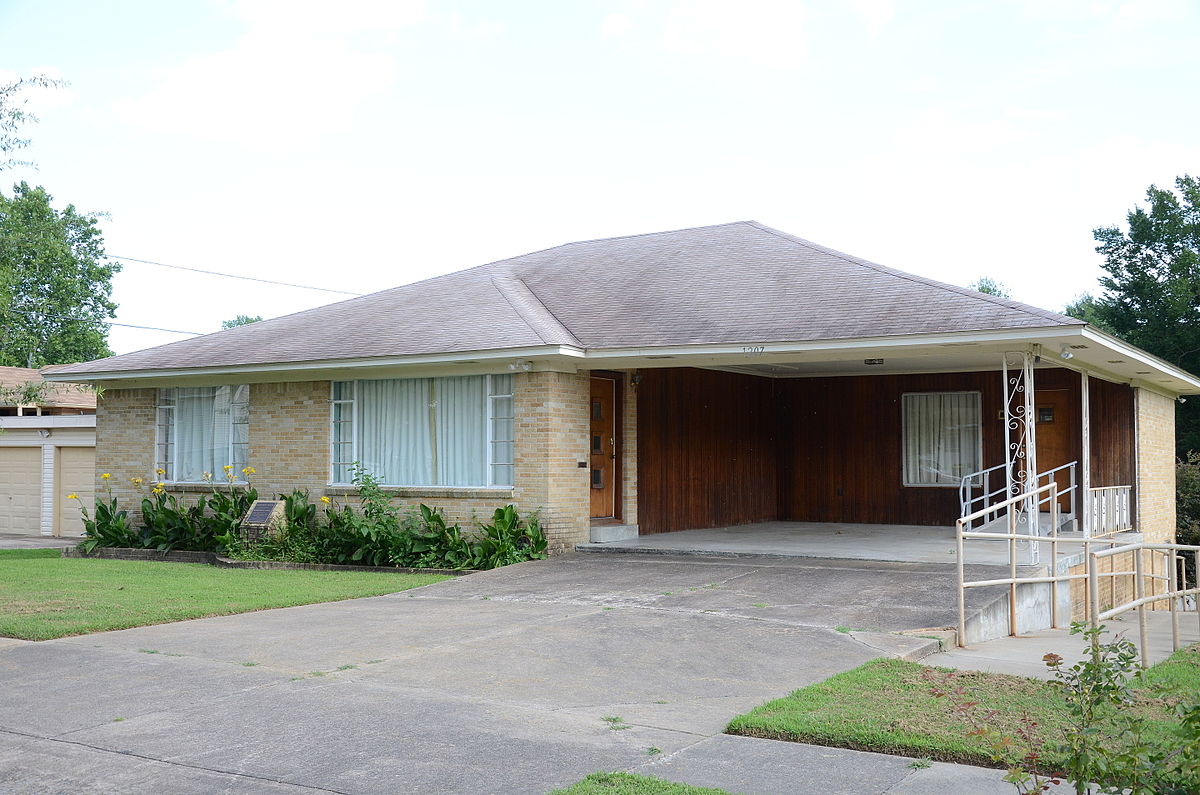Summary | Excerpt | Discuss | Reviews | Beyond the book | Read-Alikes | Genres & Themes | Author Bio

A Forceful History of Black Resistance
by Kellie Carter JacksonA radical reframing of the past and present of Black resistance—both nonviolent and violent—to white supremacy.
Black resistance to white supremacy is often reduced to a simple binary, between Dr. Martin Luther King Jr.'s nonviolence and Malcolm X's "by any means necessary." In We Refuse, historian Kellie Carter Jackson urges us to move past this false choice, offering an unflinching examination of the breadth of Black responses to white oppression, particularly those pioneered by Black women.
The dismissal of "Black violence" as an illegitimate form of resistance is itself a manifestation of white supremacy, a distraction from the insidious, unrelenting violence of structural racism. Force—from work stoppages and property destruction to armed revolt—has played a pivotal part in securing freedom and justice for Black people since the days of the American and Haitian Revolutions. But violence is only one tool among many. Carter Jackson examines other, no less vital tactics that have shaped the Black struggle, from the restorative power of finding joy in the face of suffering to the quiet strength of simply walking away.
Clear-eyed, impassioned, and ultimately hopeful, We Refuse offers a fundamental corrective to the historical record, a love letter to Black resilience, and a path toward liberation.
The chapters in We Refuse focus on five distinct (though often enmeshed) forms of Black resistance to white supremacist oppression: revolution, protection, force, flight, and joy. In the opening chapter, Jackson focuses on the Haitian Revolution in particular as an example of a radical and systemic transformation of a society through the use of violence, detailing the overthrow of the French colonizers by an armed, organized, and motivated populace (and led by the indefatigable Toussaint Louverture). She contrasts this event with the American Revolution, which she declares a misnomer given that its instigators and soldiers fought for the freedom of only a segment of society: "Washington was not fighting for revolution; he was fighting for independence from Britain." The anecdotes throughout the book focused on individual courage are often the most dynamic. The chapter on force narrates the stories of Carrie Johnson, a teenage girl who defended her home with a gun from a white mob during a riot in Washington, D.C.; and Daisy Bates, who established her house as an armed and fortified compound to protect the first students integrating Little Rock, Arkansas's Central High School...continued
Full Review
 (777 words)
(777 words)
(Reviewed by Lisa Butts).
 In We Refuse, Kellie Carter Jackson recalls the courageous and tireless efforts of civil rights activist Daisy Bates and her husband, L.C., to integrate schools in Little Rock, Arkansas. The Bates home became a place of refuge for the students known as the "Little Rock Nine" — the first group of Black children to attend the previously all-white Central High School — and their families, putting the couple at constant risk of violent retribution.
In We Refuse, Kellie Carter Jackson recalls the courageous and tireless efforts of civil rights activist Daisy Bates and her husband, L.C., to integrate schools in Little Rock, Arkansas. The Bates home became a place of refuge for the students known as the "Little Rock Nine" — the first group of Black children to attend the previously all-white Central High School — and their families, putting the couple at constant risk of violent retribution.
Born Daisy Gatson in Huttig, Arkansas in 1914, Bates's life was marked by white supremacist violence almost immediately — her mother was sexually assaulted and murdered by a group of white men when Daisy was a baby, and she was subsequently raised by family friends. She ...

If you liked We Refuse, try these:

by Ashley Hope Pérez
Published 2025
A dazzling YA anthology that spotlights the transformative power of books while equipping teens to fight for the freedom to read, featuring the voices of 15 diverse, award-winning authors and illustrators.

by Ta-Nehisi Coates
Published 2024
The #1 New York Times bestselling author of Between the World and Me journeys to three resonant sites of conflict to explore how the stories we tell—and the ones we don't—shape our realities.
Every good journalist has a novel in him - which is an excellent place for it.
Click Here to find out who said this, as well as discovering other famous literary quotes!